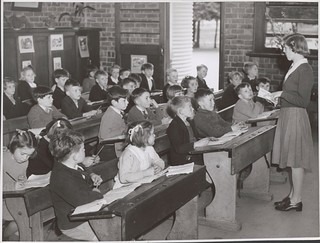What challenges/opportunities you may be faced with when marrying the personal vs the professional presence on social media?
Having social media sites that are used for both personal and professional use may have some advantages. It may allow pupils to see your interests and to realise there is more to you than the teacher they see in an educational environment. I do, however, believe that having shared social media should only be of access to pupils who are of an appropriate age to use social media (as a Primary school teacher, I wouldn’t let the pupils follow me on Twitter or be friends on Facebook.) I think shared social media may help in lessons. For example, if you had travelled to Australia and the lesson had some connection to Australia, the pictures you had posted on social media of your time there might help the pupils to understand what Australia is like and give them a realistic view of it.
On the other hand, social media used for both professional and personal use may not be appropriate. There may be photos taken from a night out or family function that some may deem unprofessional and inappropriate. This may start to raise questions of whether you are suited in such a role. It might not be appropriate for pupils to see some aspects of your private life as we are seen to be role models for them. Also, a comment you post on social media may be taken in a negative way and may put you in a difficult situation. This once again may cause people to question whether you are fit to teach.
I personally believe that, as a Primary teacher, there should be separate accounts for personal use and another one for professional use. I believe that we are all human beings and are allowed to have a life away from the professional setting in an educational environment. I do, however, believe that when “letting our hair down” that there is still a manner of professionalism that we should remember and that we shouldn’t post things on social media that we wouldn’t be happy for our parents to see.
How are the challenges/opportunities afforded by social media framed? How will you frame things – positive or deficit viewpoint?
I think the media has a large part to play in how social media is framed. I think it frames social media in a negative way as there are always horror stories of social media in the news. Whether it be stories of cyberbullying, stories about images of an explicit nature being sent or even a story about teachers on a night out supposedly “pole dancing”. I think that the media gives society a one sided view of social media, thus making a large section of society see it in a very negative way. Even though we have seen positive aspects of social media – like people finding missing relatives or the use of social media to help fundraise for a cause – I don’t think this is reported as much in the media. I do strongly believe that those real villains of the online world should be shown for what they are when it is right to do so. The public perception becomes one that believes social media shouldn’t be used in the classroom because of all the negative things it has been seen to be used for, despite there being many positive uses of it.
Personally, I would like to frame social media in a positive way. By using it in the classroom and in lessons as an extension to the traditional textbook and jotter and also instead of the traditional methods of teaching. As time goes on, technology is being developed further and I believe we should “move with the times” so that the pupils have a current education rather than one that is outdated. We should be preparing the pupils for a life outside of school and their working career, so if they have a good and positive understanding of technology and social media, it can be further developed as they grow and help open up numerous possibilities for them in the future. I also believe that people should be aware of the negatives of social media. I think that pupils should be educated about the dangers of social media so that they know it isn’t this “perfect” world and so that they don’t get themselves caught up in the negative side of social media, or if they do, know how to rectify it or how to get help to rectify it.


